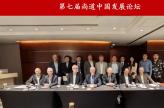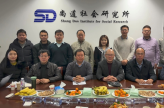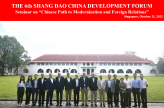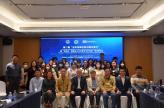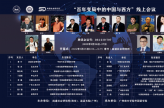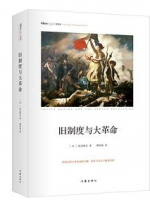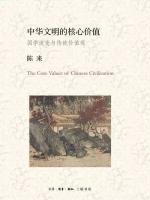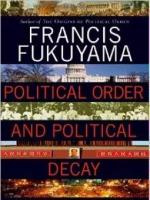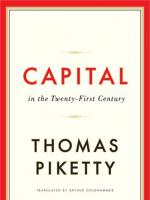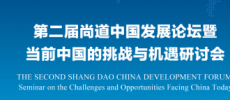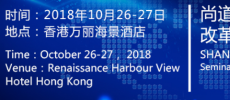寒竹:中华保守主义思想纲领(Charter for Chinese Conservativism)
更新时间:2017-06-06 11:17:33 | 来源: 尚道社会研究所
中华保守主义思想纲领(含英文版本)
寒竹
前言
近三十年中国的社会变革,使得中国不仅走出了封闭自锁的乌托邦梦境,同时也把中国推入了两千年从未有过的社会大变局。从宏观的历史轨迹看,这场变革是中国在晚清陷入内忧外患、分崩离析的垂危状态下,经历了革命党人发动的一系列红色革命,用共和的形式再造中央集权国家后向市民社会的回归和转化。跟任何一个国家的现代化过程一样,中国社会正经历着迅速发展和剧烈转型的痛苦。从国内的经济发展看,中国三十年经济改革中最有活力的产业——以出口为导向的劳动密集型产业开始进入转型升级的瓶颈阶段。而2008年由美国金融危机引发的全球经济衰退使得中国产业的换代升级之路更显艰难。从政治发展上看,三十年的变革使得社会的自由度和开放度得到了很大发展,但是法律的缺位和政府权威的流失却无法使社会得到更有效管理,社会中的无组织力量日益膨胀。从政治文化上看,近百年来的革命文化并没有随着共产党从革命党向执政党转化而消失,希望通过非法律的社会革命方式来解决各种社会矛盾的思想在执政党内部和知识界仍有极大影响。在这么一种社会条件下,我们,一个基于网络的学术流派,公开提出中华保守主义的思想纲领,表明我们对中国的现状和未来的看法。
有必要说明,我们提出中华保守主义的思想纲领并不仅仅是因应中国社会的现实发展,同时也是针对中国思想界现状的一种反应。经过了三十年的社会变革,中国思想界基本上形成了两大思潮:一个是以反对官僚资本主义为宗旨的新左派;另一个是主张由宪政民主来为中国的资本主义发展开拓道路的所谓自由派。这两派在基本的经济政治主张上尖锐对立,相互指责。但是,在我们看来,这二者的哲学基础以及它们对中国三十年社会变革的理解和评价却仍然停留在上个世纪红色革命沉溺过的乌托邦迷梦中。从哲学渊源上追溯,中国的新左派和自由派都从传统的革命党人那里继承了欧洲大陆的唯理论或绝对理性主义,相信人的理性可以通过思辨的方式演绎出放之四海而皆准的普遍原则,相信人类有能力按照理性描绘的蓝图创造出乌托邦式的理想国。从对中国社会现状的评价上看,这两个思想派别都是把中国这三十年的经济自由化和市场化看作是一切社会问题的根源。二者的区别在于,新左派是从根本上彻底否定中国经济发展的自由化和市场化,而中国的自由派们则是把缺乏民主制度政治保障的自由经济理解为一种邪恶,认为这种非民主的市场经济只能走向腐败和专制。
在我们看来,这两个相互对立的思想派别是一个铜板的两面,两者都是中国这一次社会变革前红色革命的乌托邦文化在现代社会的翻版。如果追溯得更远一些,这两个思想派别都是辛亥革命以来革命党政治文化的延续。这种革命党政治文化的特点是把理性置于经验之上,用广场语言取代社会分析,把平等看得比自由更重要,把政治看得比经济更重要。对于转型中的中国社会来说,这两种思想都极为有害,都有可能把中国社会再次引入歧途,重蹈由于乌托邦理想而引致的专制主义覆辙。在思想界的这种现状下,我们向全社会公开中华保守主义的思想纲领显得尤为必要。
(一)中华保守主义的哲学基础
中华保守主义不是一个哲学派别,更无意对整个世界作一个系统的哲学描述。我们的任务只是想对中国的现状和未来提出自己的具体主张。但是,我们坚信,在不同的历史阶段和不同的国家,希望解决社会问题的绝大部分人都是真诚和有理想的,都是希望在自己的国家建立起一个良善社会。不同的人们之所以对同一个社会现实能够产生出不同的思想派别,归根到底是因为不同的人们有着不同的哲学信念,有着不同的观察事物和理解事物的思维方式,而不是因为人们先天在道德上有善恶之分。所以我们认为,能不能正确地理解当前的中国社会,能不能对中国社会的发展提出合乎国情的主张,用什么样的哲学方法来观察世界和理解世界是至关重要的。作为中华保守主义的倡导者,我们把现代经验主义作为自己的哲学基础。
在哲学的基本问题上,我们坚持现代经验主义拒斥形而上学的基本原则,不承认世界上存在着不具备“主体间可检验性”的超验本质。我们坚信,我们居住的这个能够被感知的经验世界是唯一真实的世界。在这个经验世界之外并没有一个独立的、超验的本体世界。世界的全部本质都存在于我们能够感知的这个经验世界之中。基于这么一个信念,我们的全部注意力都放在当下的经验世界,把现实世界的各种现象作为自己的研究对象,拒绝讨论超验的本体世界和未来世界。我们认为,追求现象之外的形而上学不仅无意义,而且在现实中必将走上创建理想国之路,最后会滑落进乌托邦主义的陷阱。
在认识论上,我们坚持人类关于世界的全部知识归根结底都来自于经验。由于人的经验是个别的、有限的、具有主观片面性的,人对有限经验的归纳无法获得关于世界的绝对真理,因此我们对世界的认识保持一种谦卑的态度。我们深信,人类的理性是有限的,人类对世界的认识也是有限的。人类迄今为止所有关于世界的知识都是相对的、有限的、而且随时都有可能被证伪。我们反对唯理主义赋予人类理性以至高无上的地位,反对唯理主义在思辨中创建放之四海而皆准的普遍原则,更反对用虚幻的普遍原则来裁剪现实的感性世界。我们深信,企图建立世界最终本质的绝对知识体系不仅狂妄,而且注定在现实中走向乌托邦式的专制主义。
在历史哲学上,我们坚信人类历史是一个没有目的性的自然过程。当我们回溯历史,能够发现历史之河流过的每一个弯道,历史跨过的每一个断裂都有其具体的、实在的原因。我们也确实能够从过去的历史中总结出有价值的经验教训。但是我们认为,人类过去的经验总是个别的、偶然的、有限的,人类无法凭借自己过去和当下的经验来预见未来历史的具体发展,更不可能凭借过去和当下的经验给人类的未来社会绘制蓝图。人类经验的有限性决定了人类只能对当下的社会进行改造和修正,而没有能力按照理性绘制的蓝图重新创造社会。我们不同意历史目的论把人类历史解释为一个有神圣目标的演进过程,我们也不相信历史决定论断言人类社会的历史是按照其固有的规律向前发展。历史目的论者和历史决定论者尽管真诚地相信他们给人类未来绘制了美好的蓝图,尽管他们真诚地相信他们找到了历史的发展规律,但是,他们一次又一次把人类社会带入南辕北辙的歧途,一次又一次给人类带来巨大的灾难。
在道德哲学上,我们坚守保守主义的一般原则,强调传统文化和传统道德在社会发展中的不可或缺性。作为中华文化中的保守主义,我们信奉并推行中华传统文化中有利于人的自由发展和社会稳定的道德哲学。我们相信,中华文明能够绵延发展至今而不中断,由儒家倡导的道德规范和社会秩序是一个基本因素。尽管中国社会道德规范的基本内容和伦理纲常随着时代的发展和社会的变迁在具体内容上有所不同,但儒家强调由道德规范和和伦理纲常的内在秩序来稳定社会的精神是不变的。抛弃了中华传统道德规范的全盘西化则是近代以来反复证明走不通的道路。
(二)中华保守主义的经济主张
自由是中华保守主义的核心概念。我们认为,对于人类社会来说,自由在时间上和逻辑上都先于平等,先于民主。而经济上的自由是一切自由的前提和基础。因此,中华保守主义支持中国政府三十年来以自由主义市场经济为导向的经济改革。我们认为,自由主义市场经济在以下几个方面对中国社会有着根本性的意义。
首先,从人类社会经济发展的动力看,以竞争机制为动力的自由主义市场经济目前仍是全球经济最强大的经济发动机。中国在上个世纪五十和六十年代的红色革命时期曾经通过具有战时经济性质的计划经济获得过极高速的发展。但是,这种以政治动员为基本动力的战时经济发展体制无法持续地保持高速发展。到了七十年代后期,计划经济体制已难以再续,生产不足已经成为严重的社会问题。 在中国这么一个贫穷落后、人口众多的国家,为了解决基本的民生问题,经济的发展速度是一个生死攸关的问题。中国经济必须在相当长一段时期内保持高速发展,这是维持中国社会稳定的一个基本条件,也是中国社会走向现代化的一个基本条件。
第二,从中国所处的国际环境看,中国必须从全球的资源配置和生产分工的链条中不断升级。中国作为劳动密集型的世界工厂面临着后起国家的威胁。中国的经济必须继续保持高速度,必须不断更新升级,否则将会在世界经济链中被淘汰出局。经济全球化使得每一个国家在全球经济中如逆水行舟,不进则退。中国如不从世界产业链条的中低端向上升级,随时都有可能被新兴国家挤到后面而丧失现在的位置。所以,保持经济的高速增长和迅速升级是中国的唯一选择,而这个速度和升级只能依靠自由主义市场机制这个最大的经济发动机。
第三,随着全球劳动生产率的迅速提高,中国仅仅作为世界工厂已经不能解决中国自身的经济问题。在当前的全球经济链中,占世界人口80%的多数国家的多数民众仍处于消费能力低下的状态。按照中国现有的劳动生产率,中国拥有的劳动力已经远远超过了全球社会对劳动密集型产品的消费需要。如果仅仅依赖于出口外销,中国的剩余劳动力将是一个严重的社会问题。在中国目前还不能依靠资本输出从全球赢利的条件下,在中国还没有能力影响全球民众消费能力的条件下,唯一的选择就是把中国自身发展成为全球最大的消费市场,而这一步也只有靠资本和市场加速扩展。中国经济只有全面市场化才能把自身建造成全球最大的消费市场。从这个意义上说,自由主义的市场机制仍然是扩大中国内需市场最大的经济发动机。
第四,在中国建立起自由主义的市场经济制度并不仅仅是一个经济领域的改革,同时也是为政治自由和民主制度奠定基础。三十年的中国改革已经证明,在中国这样一个全权主义社会进行改革,根本没有纯经济的改革。社会变革的每一步,都具有政治和经济的双重性。中国这三十年的改革,从经济角度看,是一个经济逐渐民营化,市场逐渐自由化的过程;从政治角度来看,是一个执政党和政府逐步退出各个经济单位的政治改革过程,是一个执政党逐步改变其统治方式的过程;而对民众来说,则是一个由人身依附状态逐步变成能自由出卖劳动力的现代人的过程,是从“单位人”逐渐转变为“自由人”的过程,并向现代意义上的“公民”转化;从社会状态上看,是一个由意识形态主导的政治社会向商业文化主导的市民社会的转化过程。中国半个多世纪以来的经济政治现实告诉我们,中国社会的改革必须要从经济制度入手,必须要让全权主义那种彻底控制经济活动、严密控制人身自由的绝对统治方式退出中国的历史舞台。从这个意义上说,中国经济的自由化和市场化过程就是人的解放过程。只有通过市场化,每一个社会成员才能获得基本的人身自由、获得选择工作、出卖劳动力的自由。只有通过市场化,中国社会才能从一个由意识形态主导的政治社会转化为现代市民社会。
但是,中华保守主义跟一般保守主义有一个不同之点,这就是并不是简单地主张政府对经济活动无为而治。中国作为一个后起的世界大国,面对的是一个已经被发达国家所控制和主导的世界经济体系。近现代历史告诉我们,在全球性市场发展的各个历史阶段,在重商主义、贸易保护主义和自由贸易主义等反复博弈的历史条件下,没有国家力量的参与和介入,任何一个国家的企业要想单独走向世界市场是不可能的,同样中国的企业不可能仅仅凭借自身的力量参与全球经济的残酷竞争。我们主张在中国建立起完善的自由主义市场经济体系的根本原因,仅仅是强调自由经济的强大竞争机制和它对政治自由的意义。在全球竞争中,我们也同样强调国家的力量。我们主张,市场机制和强势政府是中国经济发展之两翼,二者缺一不可。在经济全球化过程中,中国政府必须要强有力地整合和主导中国企业参与全球竞争,必须要充分运用政府的资源对中国企业的全球竞争做出战略指导和扶持。
(三)中华保守主义的政治主张
中华保守主义政治主张的基本观点是强调现代文明社会是生长成的,而不是创造出来的。从世界各国的历史看,凡是在稳定的秩序下进行循序渐进改革完成现代化的国家,通常都能够建立起比较稳定的自由民主制度。相反,通过激烈的大革命来解决社会问题的国家则往往走向跟革命初衷相反的专制主义体制。中华保守主义把现代极权主义产生的根源归结为推翻传统专制主义的社会革命。
传统专制主义的特点是君主专制制度。君主和贵族通过公开的等级制度垄断了社会的各种资源,在经济上和政治上剥夺了普通民众的权利。世界各国近代革命的基本矛头是指向君主专制制度。革命者希望通过社会革命来推翻等级森严的君主和贵族统治,从而建立起人人平等的自由社会。
但是,我们认为,推翻等级森严的君主专制制度,建立自由平等的理想社会的暴力革命往往走向反面,最终重建更加严酷的专制政体。暴力革命走向自身反面的政治根源在于任何一场革命都无法满足全社会的平等要求。当革命打破了原有社会的秩序后,社会的所有成员都摆脱了原有的一切束缚,每一个社会阶层、每一个社会成员都开始要求平等的权力,即使是最激进的民主社会也无法满足所有社会成员的利益和要求。当革命被视为解决社会问题的根本手段时,每一个通过革命获得政权的政治集团都将被没有掌握权力的社会民众看作是继续革命的障碍和新的革命对象。革命最终不得不面临着两个艰难的选择:一个是无休止地继续革命,台下的民众不断地登上台来革掌权者的命,昨天的革命者不断地沦为今天的被革命者;另一个选择是革命者转变为反革命,对新的革命要求进行镇压,把新的不平等秩序用暴力固定下来。前一个选择的后果是社会永远处于无政府的革命状态,后一个选择的后果是重建新的专制主义。
历史的经验证明,近代以来几乎所有爆发过大革命的国家都经历过上面的困境。二十世纪的现代极权主义几乎都是暴力革命结出的果实。由于这原因,我们坚决反对自下而上的社会革命,特别是反对以平等为口号的暴力革命。由于这个原因,中华保守主义把平等主义和民粹主义看作自由的敌人。
在国家的基本结构形式上,中华保守主义坚持以中央政府为权力中心的单一制政治传统,反对中央与地方分权的联邦制度。我们相信,由于缺乏地方自治的传统政治文化,由于缺乏强有力的法律保障和民主制度,地方自治只能意味着地方基层政权宗族化和黑社会化。历史证明,几乎所有中央集权国家的崩溃都是始于中央政府对地方基层政权的失控和地方基层政治的糜烂。中国两千多年的政治文化传统和当今的社会现实,国际间严酷的竞争环境,决定了中国必须保持一个强大而有效的中央政府。
由于上述原因,我们认为中国的政治改革首先要为自身确定一个基本操作方向。中国的政治改革究竟是自上而下地从中央政府到地方政府逐步实现民主化,还是地方基层政权开始,由下而上地逐级建立起民主制度?这是中国社会政治改革能否成功的关键。中华保守主义尊重目前中国政府正在进行的乡村民主选举的实验。但是,我们认为,这并不是一条在中国社会走得通的民主化之路。
由于中国两千多年中央集权的政治文化传统,中国自由民主制度的建立必须在全民的监督下从中央政府的政治改革开始,必须从执政党高层核心的基本制度开始。自上而下地进行政治改革,把民主政治梯田式地从上而下地层层耕耘是中国社会平稳过渡到民主制度的有效途径。相反,如果中国的民主化改革从地方基层政权开始,中央政府的合法性将会因为地方政府的自治性而受到动摇,中国社会的基本政治结构将会因为无法承受基层政治的松动而面临崩溃。晚清的政治改革在这方面曾经有过失败的教训。
关于中国政治改革,中华保守主义有以下几点基本主张:
第一,中国政府必须逐步走出家长式的全能型政府的模式。中国的全能政府来自于上个世纪五十年代建立起来的全权主义制度。在经过了三十年的社会经济改革后,中国政府逐步退出了许多微观经济领域,但中国政府仍然像大家长似的管理着社会生活的各个方面。中国全能政府得以延续的一个重要原因是执政党把强势政府和全能政府混为一谈。从新兴国家发展的一般规律看,强势政府确实能够最有效地运用社会的各种资源,最有效地动员社会各界成员,在弱肉强食的国际丛林中能够最大程度保证本国经济和政治的独立。但是,强势政府并不等于就是全能政府。由于受全权主义政治文化的影响,中国的执政党并没有意识到强势政府与全能政府的根本区别,在现实中仍然不断扩大政府的管辖范围,结果造成了政府在规模和数量上的恶性膨胀和管理能力的日益低下。
全能政府的一个根本性弊端是制度性的腐败。由于政府全方位地介入经济活动,各级政府官员都身体力行地投身到经济活动中,政府自身成了经济活动的主体。由于这个原因,政府的经济活动基本处于一种缺乏制约的状态,各级政府官员的贪污腐败成了一种制度性的弊端,无论何种严刑峻法都无法阻止在商业大海里冒险违法的政府官员。从政治生态上看,政府官员大面积的贪污腐败必然造成政府的权威大量流失。全能政府管辖的范围虽然广大,但民众接受政府管辖的意愿却在不断降低。
全能政府的另一个弊端是政府由于管辖面太广而陷入社会管理困境。威权政府作为一种转型中的过渡统治体系,最大的危险在于这种政治体系在一方面放弃了全权政府对社会的严密控制手段,在另一方面却不能与时俱进地放弃对全社会家长式的管理,从而使政府承担的家长式责任远远超过了其管辖能力。在目前的中国社会,政府的管理能力越来越低于政府承担的社会责任。许多本属于市民社会中的民间纠纷常常演化为民众和政府的政治冲突,而且这种现象随着中国社会的日益开放和发展越来越严重。中国社会目前这种管理困境的本质在于政府的全能性并未随着政府从全权式统治向威权式统治的转化而发生改变,中国政府仍然背负着全权政府所拥有的社会责任。这种管理能力无法跟上社会责任的矛盾现象直接导致了中国政府的权威流失,其结果是政府管辖的事务越多,民众对政府的期待越大,政府有效解决问题的能力越小,最终导致政府陷入管理国家的困境。
我们认为,从本质上看,政府是一种统治社会的政治体系。政府主要是通过立法、司法和行政等责权相匹配的方式来实行国家的统治。政府行政部门应该尽量地摆脱一般民间事务和商业纠纷,把法律的还给法律,由独立的法律系统来规范民间社会的各种行为。独立的司法系统不仅意味着对普通民众更为公正的法律体系,同时也意味着民间社会的利益纠纷应当由当事人自身通过法律手段解决,民间社会的利益冲突止于民间社会,政府对社会的管理始终处于超然的监管地位。现代社会的一个普遍现象是,越是超然的政府,政府的效率和威信越高。这一点对于转型中的中国社会是至关重要的。
中国政治改革的第二个任务是逐步落实宪法规定的言论自由。中国目前的宪法实际已经明确规定公民拥有言论自由。中国社会的言论自由之所以在某些方面继续受到限制是因为政府担心在政治问题上的自由言论将会引起社会动荡。这个矛盾现象从现实上分析,是由于全能政府承担过多责任而导致政治问题与社会问题无法有效分离;从历史上追溯,中国近百年来的革命型政治文化是造成中国社会长期以来政治领域与社会领域混为一体、不能有效分离的根本原因。在全能政府的框架内,由于司法不独立、法律体系不健全,社会问题不能局限在法律框架下妥善解决,动辄上升为政治问题,使得言论自由成了社会领域与政治领域之间的直通通道,造成整个社会组织结构的不稳定。由于中国近百年来的革命党传统文化的影响,从政府到民众都有把一切社会问题政治化的倾向和习惯。但是,正是由于这些原因,只有逐步实行言论自由才能把中国社会从政治社会转型为市民社会。中国政府必须面对的现实是,对全社会的言论自由进行限制,最终仍然无法解决社会组织结构不稳定的问题。而且,长期持续地限制言论自由,社会自身的组织结构和稳定力量还会继续退化,政府对政治领域和社会领域实行分离的能力还会下降,社会的稳定将越来越依赖政府对言论的控制。这是一种社会成本极高的消极做法。我们坚信,在中国从威权制度社会向民主社会的过渡中,从政治社会向市民社会的过渡中,逐步落实宪法所赋予公民的各项个人自由,让公民社会在言论自由中逐步建立起自律的社会文化,是中国社会改革必须要解决的一个根本问题。
中华保守主义目前还只是一个非主流思潮,一个学术流派,本文的起草者只是一群自由写作人,不代表任何政治势力。本文的发表也仅限于对中国现实问题的学术探讨。
(作者:寒竹 尚道社会研究所所长,研究员。 本文写于2009年,略有删节)
Charter for Chinese Conservativism
Michael Wu
Introduction
China’s social change in last three decades has not only led it out of the Utopianism of isolation, but also has facilitated a social transformation unprecedented in two millennia. From a macro-perspective, set in China’s late imperial phase when the country was threatened by domestic strife, foreign aggression and fragmentation, after a series of revolutions, the transformation was directed at a civil society on republican and centralist principles. Like any other nation which had to undergo the process of modernization, the Chinese society is caught up in the throes of rapid development and drastic changes. Its export-oriented and labor-intensive manufacturing industry, the vital part of the economic reform in last three decades, is entering the bottleneck stage of upgrading, which was complicated by the 2008 global recession triggered by malpractices on the Wall Street. Despite the fact that three decades of reform has made China freer and opener, the jurisprudent disengagement and massive hemorrhage in bureaucratic credibility has resulted in increasingly tormented governance and an expansion of unorganized social forces. The revolutionary mentality formed in last century has not disappeared with the shift in role of the Communist Party from one of leading revolutionary parties to one of the governing. Social revolution unmediated by law as a means to cure all the social problems remains potently appealing in the ruling party as well as in the academia. Under such social conditions, we, an online academic group, openly declare a charter for Chinese Conservativism, outlining our understanding of China’s present and future.
We maintain that our position is not merely a response to China’s societal realities but also a reaction to the current climate in China’s intellectual realm. After three decades of social reform, two trends of thought have come to dominate China’s intellectual circles: the New Left, which is opposed to state capitalism, and the so-called Liberalism, which seeks to smooth path for China’s market economy by championing constitutional democracy. These two groups are sharply opposed to and critical of each other in political and economic views. However, according to our understanding, in terms of theoretical foundation and their interpretation and evaluation of China’s changes in recent decades, they both are steeped in the utopian dreams epitomized in the Red Revolutions of the past century. Seen from theoretical foundation, both groups inherited the rationalism of Continental Europe (Absolute Reason) from the traditional revolutionaries, believing that with reason man is capable of deducing universal principles through dialectics, thus owning the power to turn a Utopia on paper into reality. Seen from the evaluation of the current social situation in China, both parties view economic liberalization and the move towards market economy as the root cause to the current social evils. The difference lies in the fact that the New Left categorically rejects liberalization and market economy whereas the Liberals consider them as evils, holding that the lack of democracy would lead to corruption and autocracy.
We believe, however, that these two opposing parties are just two sides of the same coin: both are formed by the Utopian culture of the Red Revolution era, re-minted in contemporary China, and essentially continue the same old impulse originating in the Xinhai Revolution in 1911. Their political culture is characterized by the replacement of social analysis by demagogic discourse, and an emphasis of reason over empiricism, equality over freedom, politics over economics. Both trends of thoughts are pernicious to a Chinese society undergoing transformation in that both may lead China astray and replicate the autocratic rule originating in Utopian dreams, hence the necessity of publicizing our charter for conservatism to the general public.
I. The philosophical foundations of Chinese Conservatism
Ours is not a philosophical school and seeks no systemic interpretation of the comprehensive reality of the entire world. What we seek is merely proposing our own notions of China’s present and future. We are convinced that, everywhere and always, most members of a human society who quest for solutions to social problems are sincere and aspiring, and that they all want to make a better place for life of their societies. Different people constitute different schools of thoughts due to different philosophical outlooks and different ways of perceiving and interpreting matters, instead of the inherent moral difference of good or bad. By the same token, the philosophical method whereby we observe and construe the world becomes essential, for it will affect the way we understand China’s current situation and the feasibility of suggestions we put forth. We, advocators of Chinese conservatism, take modern empiricism as our philosophical foundation.
We embrace the modern empiricism but reject metaphysics, denying transcendence without “testability between subjects”. It’s firmly believed that the perceivable empirical world in which we inhabit is the only real world. Beyond it exists no separate, transcendent ontological entity. The entire being of this world inheres in this perceivable empirical world. On the basis of such a conviction, our sole attention is owed to this empirical realm, taking its phenomena as our objects of enquiry and refusing to engage in discussions that involve ontological entities that transcend the senses or pertain to the future world. We maintain that metaphysical speculation divorced from phenomena is not only meaningless, but misleading in practice and will finally slip into a utopian trap.
In terms of our epistemology, we hold that our entire knowledge is derived from experience. Due to the individuality, finiteness and subjectivity of human experience, no absolute truth can be inferred from such limited human experience, we therefore must maintain a humble intellectual stance. The knowledge we have obtained so far about the world is all relative, limited and under risks of being proven false. We repudiate the deification of human reason, oppose constructing universal principles through dialectical meditation in virtue of reason, and even more strongly oppose the use of such principles to cut apart sensory reality. We argue that any attempt to establish an absolute system about the world’s ultimate nature is delusional and doomed in practice to utopian despotism.
We believe that human history is a natural process that is essentially non-teleological. We submit that every historical occurrence has its concrete and real causes, and that indeed we can draw valuable lessons from history. Yet we believe past human experience is always individual, accidental and limited, and that we are not positioned to predict the trajectory of future development on the basis of our past and present experience, not to mention providing a guiding blueprint for our collective future. The finitude of human experience defines our utmost as revising and rectifying the present society; We cannot, with the limitations, create and rebuild a new society according to a blueprint designed with reason. We do not subscribe to a teleological understanding of human history as an evolution towards a divinely ordained end. We reject any historical determinism that postulates a historical movement governed by certain inherent laws. Despite firm convictions of such teleologists and determinists that they have discovered the ideal law governing historical development, their best intentions and visions have repeatedly arrived at opposite poles, leading to devastating consequences, major catastrophes and great sufferings to the human race.
In terms of the moral philosophy, we adhere to the basic and general principle of conservatism, namely the indispensability of traditional culture and traditional ethical values in social development. Representing conservatism in Chinese culture, we subscribe to and promote a moral philosophy within Chinese traditional culture that conduces to both free developments of a person and stability of the society. We believe that Confucian moral tenets and social order is fundamental to the unbroken evolution of the Chinese civilization till this day. Although the specific content of Chinese society’s moral creeds might vary with time transition and social changes, the basic idea of Confucianism that the inner order contained in its moral and ethical system serve as the foundation to societal stability remains unchanged. Indiscriminate westernization of China has been repeatedly proven untenable in our experience.
II. The Economic Proposition of Chinese Conservatism
Freedom is the core value of Chinese Conservatism. As far as we are concerned, freedom possess temporal and logical priority over equality and democracy. Furthermore, economic freedom is the pre-condition and foundation to all freedoms. We therefore approve of market economy reforms launched by the Chinese government in last three decades. We are convinced that liberalist market economy is crucial to the Chinese society. Reasons are as follows:
First, based on the principle of free competition, free-market economy remains the most powerful engine in the present global economy. The Red Revolution era of the 1950s and 60s witnessed rapid economic growth of China through planned economies with war-time features. But such growth relying on the political mobilization was unsustainable, which was proven by the late 1970s when inadequate production by then had become a major social problem. In such a country as poor, backward and populous as China, economic growth rate is naturally a matter of life and death. Maintaining high-speed economic growth is crucial to China’s social stability as well as its modernization.
Second, seen from the global environment, China must keep moving up in the chain of global resource configuration and production sharing. As a labor-intensive factory to the world, China is facing threats from emerging nations. Without high economic growth rate, it would be knocked out in the competitive global economic food chain. Economic globalization means every country must move ahead, otherwise their current position would be taken over by a late-comer. China is no exception. In this case, it has no choice but to embrace free-market mechanisms.
Third, with great improvement in global labor productivity, the status of the world’s factory is no wonder drug to China’s economic problems. In today’s global economic food chain, 80% of the world’s population remains mired in low consumptive power. With present rate of labor productivity, China’s labor force has outrun consumptive needs of the world. With exports as the sole solution, surplus labor will become a serious problem. Having not possessed the ability to garner revenue through exporting capital and to influence the consumptive capabilities of the world’s people yet, China has no choice but to develop into the world’s biggest consumer market, which also requires the accelerated expansion of market and capital. Without full marketization, the establishment of the world’s biggest consumer market is impossible. In this sense, liberalist free-market mechanisms remain China’s largest economic engine to power the expansion of domestic consumption.
Fourth, to establish liberal market economy in China is not merely implementing a reform in the economic realm, but also is laying the foundation for political freedom and democratization. The last three decades has demonstrated that in a totalitarian society like China, no reform can be purely economic. Every step in social transformation carries dual economic and political connotations. Seen from economics, the past three decades sees the gradual privatization of the economy and the gradual liberalization of the market. Seen from politics, the period is marked by a gradual withdrawal of the ruling party and its government from various economic entities; the Party is changing its way of governing. To the people, the period allowed them to gradually change from a “work unit associate” to a citizen in its modern sense. Seen from sociology, the period witnesses the transformation of the society from one dominated by political ideologies to a civil one dominated by commercial culture. More than five decades of political and economic reality has taught us that the transformation of Chinese society must take economic reform as its starting point and that totalitarian control of every aspect of economic activities and a person’s freedom must be scrapped. In this sense, liberalization and marketization of China’s economy is the emancipation of the people. Only through marketization can each member in the society gain basic personal freedom and the freedom to choose work and sell labor. And only through marketization can the Chinese society shift an ideology-oriented one to a modern civil society.
However, Chinese Conservatism differs from normal conservatism in that we do not adopt a simple no-interference-from-government stance in regard to economic activities. As a late-coming major power, what’s in front of China such a global economic system as has been dominated by developed countries. The modern history has shown that in every stage of the evolution of global market, with the game between mercantilism, protectionism, and free trade, without support from domestic government, not a single enterprise can approach the international arena alone. China is no exception. We support liberalism and embrace market economy only for its powerful competitive mechanism and its positive implications for institutionalizing political freedom. In the context of global competition, national power cannot be left ignored. To China’s economic development, a strong government and a strong market are like two wings, both of which are indispensable. The Chinese government must avail of its resources to facilitate Chinese enterprises’ entry into the global competition and provide continuous support and guidance.
III. Political Creeds of Chinese Conservatism
Chinese Conservatism subscribes to the view that modern civilizations are developing, rather than being created. A retrospect of the various nations’ history in the world reveals that countries which achieved modernization in a peaceful and orderly manner tend to have relatively stable democratic systems. In contrast, nations resort to violent revolutions when coping with social problems tend eventually to establish totalitarian governments, which runs counter to the initial goals of the revolutions. Chinese Conservatism attributes the modern totalitarianism to the very revolutions that overthrew the more traditional forms of totalitarianism.
Traditional totalitarianism was characterized by the institution of monarchy. The monarch and the nobles monopolize the distribution of social resources and deprive common people of their political and economic rights. Modern revolutions were all targeted at monarchic autocracy. The revolutionaries intended to overthrow the heavily stratified society ruled by the autocrat and his nobles through social revolutions and therewith establish a free society in which all social members are equal.
However, we believe that such violent revolutions tended ultimately to establish autocratic governments that are even worse than the replaced ones. The reason for this ironic turn of events is that no revolution can satisfy the need for equality of the entire society. As the social order of the former society was broken by the revolution, all social members break free from old bondages and each and every one of them starts to demand equal power. However, even the most democratic society is unable to satisfy the needs and demands of all their members. When revolution is seen as the basic solution to social evils, every new ruling group which has thus obtained power would, in turn, be seen as an obstacle to continuous revolution and a target of a new revolution. Thus revolution is caught up in a dilemma: either it must continue in a self-perpetuating fashion, with the masses rising to expel the old rulers and former revolutionaries in turn marked for fresh overthrow, or former revolutionaries turn reactionary to suppress fresh revolutionary demands and institutionalize a new form of inequality through violence. The first choice entails throwing a society into a condition of perpetual anarchist revolutions; the second choice brings about a new autocracy.
Modern history has demonstrated that almost all countries going through violent revolutions were trapped in the aforementioned dilemma. Almost all forms of the 20th-century totalitarianism have resulted from violent revolutions. We therefore oppose any form of bottom-up social transformation, in particular, violent revolutions with equality as their rallying call. Therefore Chinese Conservatism sees egalitarianism and populism as the nemesis to freedom.
We also hold to a unitary form of governance for China, with a dominant central government, but oppose to a federalist approach characterized by a stronger share of power by regional administrations. With the absence of a traditional political culture of self-rule based on law and democracy, regional self-rule inevitably dwindles into lower-level administration dominated by strong local lineages and organized crime cliques. History has repeatedly proven that the demise of almost all centralist governments could be dated back to the loss of central control over the local areas and the corruption of local governance. A 2,000-year-plus tradition of political centralism, combined with today’s social reality and a severely competitive international environment, has made a strong and effective central government a necessity for China.
As discussed above, choosing a proper operative direction for China’s political reform is of vital importance. Should China’s political reform take the form of gradual top-down democratization, starting from the central government and then trickling down to local administrations, or vice versa? The answer is crucial to the success of China’s sociopolitical reform. Chinese Conservatism, while respecting Chinese government’s effort to experiment with democratic elections at the village level, believes that this is not a feasible path to democratizing the entire country.
With more than 2,000 years of a centralist political culture, China has to achieve democratization with the central government and fundamental changes at the highest level within the ruling party as a starting point under the watchful eyes of the populace. It must advance from top to bottom, tilling the ground layer by layer until democracy prevails at the lowest reaches of the society in a peaceful transition. Otherwise, the legitimacy of the central government might be jeopardized due to the regional self-rule. The fundamental political structure would collapse as the foundation underneath starts to crumble, which is the political lesson taught to us all by the late Qing Dynasty.
Chinese Conservatism’s Basic Views on Political Reform in China:
First, the Chinese government must cease trying to be omnipotent and responsible for every aspect of social life. Such old mode of governance stems from the totalitarian system established in the 1950s. Three decades of economic-political change has seen the government exiting many of the micro-economic realms, but the government still manages every aspect of social life. The outdated mode continues primarily because the authorities mix a strong government with that of an all-managing one. Seen from the general developing laws of emerging powers, a strong government is indeed most effective in mobilizing all social members and various kinds of resources for the utmost political and economic independence in a competitive international environment. However, being strong does not denote being all-managing. But China’s ruling party, trapped in its totalitarian mindset, fails to distinguish the two and continues to expand its sphere of jurisdiction, resulting in an increasingly bloated bureaucracy plagued by staggering administrative inefficiency.
The crippling disadvantage of an all-managing government is systematic corruption. Due to the governmental interference in every aspect of economic life, officials at all levels are engaged in (indeed lead) economic activities, making it difficult to impose effective checks and restraints on corruption even with the harshest legal sanctions. This leads to a massive loss of administrative credibility and prestige, with dwindling public willingness to comply with government expectations as the dire consequence.
Another disadvantage is the administrative nightmare caused by outsized responsibilities. As an interim governing system under transformation, this authoritarian government is gradually relinquishing tight, totalitarian measures of social control without concomitantly shrinking its scope of duties, resulting in the crippling consequence of overburdening its administrative infrastructure. Many civilian conflicts proper to any civil society, evolved into conflicts between the people and the government, which continues to worsen with the deepening opening up and development of China. Burdened with the same old responsibilities as those under the previous totalitarian mode of governance, the Chinese government fails to transform from totalitarian rule to authoritarian rule. The fact that social responsibilities outrun administrative capabilities results in impasse characterized by overstretching its capability and resources in face of rising demands and expectations from the people, leading to more serious social tension.
We maintain that as a political system in charge of the society, the government must rely on balanced legislative, judicial and executive powers to accomplish its mission. The executive departments must disentangle itself from civilian affairs and commercial conflicts; they must return what belongs to the judiciary to an independent judiciary and let it play its role of regulating behaviors in a civil society. An independent judiciary not only guarantees better justice for the populace, but also allows all parties in a conflict of interests to resort to lawsuits without jeopardizing government’s transcendent regulatory role. Experiences in modern advanced nations have shown that the more transcendent a government is, the more efficient and trustworthy it becomes, which teaches a crucial lesson for a Chinese society in transition.
The second task for China’s political reform is to gradually guarantee freedom of speech promised by the constitution. The reason why freedom of speech is curtailed in some respects despite constitutional protection, is that the government fears social instability might result from free speech on certain political issues. We believe that this is caused by governmental overburdening which makes it impossible to separate social problems from political problems. Furthermore, a century of revolutionary type of political culture is the root cause of the inability to disassociate the civil realm from the political one. Under the totalitarian scheme of governance, within an incomplete judicial framework, civil conflicts cannot be effectively resolved and later will escalate into political issues, making freedom of speech the direct conduit between the civil and political realms and thereby shaking the entire social structure. Recent century of revolutionary tradition has set a mentality among people as well as the government to politicize everything social. But precisely for this reason, freedom of speech must be gradually implemented so as to transform China from a political society into a civil one. The government must be aware that continuing restriction on freedom of speech is no cure for the problem of instability in social organizing structure, only to find the situation exacerbated as the stabilizing forces and the government’s ability to disassociate the civil from the political decline further and the government’s reliance on controlling speech becomes heavier. This is a negative and costly measure. We believe that as China transforms from an authoritarian society into a democratic society, from a political society into a civil one, putting all the individual rights promised by our constitution into practice and cultivating self-discipline in the citizenry with the exercise of freedom of speech are essential to China’s social reform.
Chinese conservatism is now just a non-mainstream trend of thought and an academic school. The drafters of this article, a group of free writers, do not represent any political force. This article is also limited to the academic discussion of the reality of China.
(Michael Wu, Research Fellow and the Director, ShangDao Institute for Social Research)
We maintain that our position is not merely a response to China’s societal realities but also a reaction to the current climate in China’s intellectual realm. After three decades of social reform, two trends of thought have come to dominate China’s intellectual circles: the New Left, which is opposed to state capitalism, and the so-called Liberalism, which seeks to smooth path for China’s market economy by championing constitutional democracy. These two groups are sharply opposed to and critical of each other in political and economic views. However, according to our understanding, in terms of theoretical foundation and their interpretation and evaluation of China’s changes in recent decades, they both are steeped in the utopian dreams epitomized in the Red Revolutions of the past century. Seen from theoretical foundation, both groups inherited the rationalism of Continental Europe (Absolute Reason) from the traditional revolutionaries, believing that with reason man is capable of deducing universal principles through dialectics, thus owning the power to turn a Utopia on paper into reality. Seen from the evaluation of the current social situation in China, both parties view economic liberalization and the move towards market economy as the root cause to the current social evils. The difference lies in the fact that the New Left categorically rejects liberalization and market economy whereas the Liberals consider them as evils, holding that the lack of democracy would lead to corruption and autocracy.
We believe, however, that these two opposing parties are just two sides of the same coin: both are formed by the Utopian culture of the Red Revolution era, re-minted in contemporary China, and essentially continue the same old impulse originating in the Xinhai Revolution in 1911. Their political culture is characterized by the replacement of social analysis by demagogic discourse, and an emphasis of reason over empiricism, equality over freedom, politics over economics. Both trends of thoughts are pernicious to a Chinese society undergoing transformation in that both may lead China astray and replicate the autocratic rule originating in Utopian dreams, hence the necessity of publicizing our charter for conservatism to the general public.
I. The philosophical foundations of Chinese Conservatism
Ours is not a philosophical school and seeks no systemic interpretation of the comprehensive reality of the entire world. What we seek is merely proposing our own notions of China’s present and future. We are convinced that, everywhere and always, most members of a human society who quest for solutions to social problems are sincere and aspiring, and that they all want to make a better place for life of their societies. Different people constitute different schools of thoughts due to different philosophical outlooks and different ways of perceiving and interpreting matters, instead of the inherent moral difference of good or bad. By the same token, the philosophical method whereby we observe and construe the world becomes essential, for it will affect the way we understand China’s current situation and the feasibility of suggestions we put forth. We, advocators of Chinese conservatism, take modern empiricism as our philosophical foundation.
We embrace the modern empiricism but reject metaphysics, denying transcendence without “testability between subjects”. It’s firmly believed that the perceivable empirical world in which we inhabit is the only real world. Beyond it exists no separate, transcendent ontological entity. The entire being of this world inheres in this perceivable empirical world. On the basis of such a conviction, our sole attention is owed to this empirical realm, taking its phenomena as our objects of enquiry and refusing to engage in discussions that involve ontological entities that transcend the senses or pertain to the future world. We maintain that metaphysical speculation divorced from phenomena is not only meaningless, but misleading in practice and will finally slip into a utopian trap.
In terms of our epistemology, we hold that our entire knowledge is derived from experience. Due to the individuality, finiteness and subjectivity of human experience, no absolute truth can be inferred from such limited human experience, we therefore must maintain a humble intellectual stance. The knowledge we have obtained so far about the world is all relative, limited and under risks of being proven false. We repudiate the deification of human reason, oppose constructing universal principles through dialectical meditation in virtue of reason, and even more strongly oppose the use of such principles to cut apart sensory reality. We argue that any attempt to establish an absolute system about the world’s ultimate nature is delusional and doomed in practice to utopian despotism.
We believe that human history is a natural process that is essentially non-teleological. We submit that every historical occurrence has its concrete and real causes, and that indeed we can draw valuable lessons from history. Yet we believe past human experience is always individual, accidental and limited, and that we are not positioned to predict the trajectory of future development on the basis of our past and present experience, not to mention providing a guiding blueprint for our collective future. The finitude of human experience defines our utmost as revising and rectifying the present society; We cannot, with the limitations, create and rebuild a new society according to a blueprint designed with reason. We do not subscribe to a teleological understanding of human history as an evolution towards a divinely ordained end. We reject any historical determinism that postulates a historical movement governed by certain inherent laws. Despite firm convictions of such teleologists and determinists that they have discovered the ideal law governing historical development, their best intentions and visions have repeatedly arrived at opposite poles, leading to devastating consequences, major catastrophes and great sufferings to the human race.
In terms of the moral philosophy, we adhere to the basic and general principle of conservatism, namely the indispensability of traditional culture and traditional ethical values in social development. Representing conservatism in Chinese culture, we subscribe to and promote a moral philosophy within Chinese traditional culture that conduces to both free developments of a person and stability of the society. We believe that Confucian moral tenets and social order is fundamental to the unbroken evolution of the Chinese civilization till this day. Although the specific content of Chinese society’s moral creeds might vary with time transition and social changes, the basic idea of Confucianism that the inner order contained in its moral and ethical system serve as the foundation to societal stability remains unchanged. Indiscriminate westernization of China has been repeatedly proven untenable in our experience.
II. The Economic Proposition of Chinese Conservatism
Freedom is the core value of Chinese Conservatism. As far as we are concerned, freedom possess temporal and logical priority over equality and democracy. Furthermore, economic freedom is the pre-condition and foundation to all freedoms. We therefore approve of market economy reforms launched by the Chinese government in last three decades. We are convinced that liberalist market economy is crucial to the Chinese society. Reasons are as follows:
First, based on the principle of free competition, free-market economy remains the most powerful engine in the present global economy. The Red Revolution era of the 1950s and 60s witnessed rapid economic growth of China through planned economies with war-time features. But such growth relying on the political mobilization was unsustainable, which was proven by the late 1970s when inadequate production by then had become a major social problem. In such a country as poor, backward and populous as China, economic growth rate is naturally a matter of life and death. Maintaining high-speed economic growth is crucial to China’s social stability as well as its modernization.
Second, seen from the global environment, China must keep moving up in the chain of global resource configuration and production sharing. As a labor-intensive factory to the world, China is facing threats from emerging nations. Without high economic growth rate, it would be knocked out in the competitive global economic food chain. Economic globalization means every country must move ahead, otherwise their current position would be taken over by a late-comer. China is no exception. In this case, it has no choice but to embrace free-market mechanisms.
Third, with great improvement in global labor productivity, the status of the world’s factory is no wonder drug to China’s economic problems. In today’s global economic food chain, 80% of the world’s population remains mired in low consumptive power. With present rate of labor productivity, China’s labor force has outrun consumptive needs of the world. With exports as the sole solution, surplus labor will become a serious problem. Having not possessed the ability to garner revenue through exporting capital and to influence the consumptive capabilities of the world’s people yet, China has no choice but to develop into the world’s biggest consumer market, which also requires the accelerated expansion of market and capital. Without full marketization, the establishment of the world’s biggest consumer market is impossible. In this sense, liberalist free-market mechanisms remain China’s largest economic engine to power the expansion of domestic consumption.
Fourth, to establish liberal market economy in China is not merely implementing a reform in the economic realm, but also is laying the foundation for political freedom and democratization. The last three decades has demonstrated that in a totalitarian society like China, no reform can be purely economic. Every step in social transformation carries dual economic and political connotations. Seen from economics, the past three decades sees the gradual privatization of the economy and the gradual liberalization of the market. Seen from politics, the period is marked by a gradual withdrawal of the ruling party and its government from various economic entities; the Party is changing its way of governing. To the people, the period allowed them to gradually change from a “work unit associate” to a citizen in its modern sense. Seen from sociology, the period witnesses the transformation of the society from one dominated by political ideologies to a civil one dominated by commercial culture. More than five decades of political and economic reality has taught us that the transformation of Chinese society must take economic reform as its starting point and that totalitarian control of every aspect of economic activities and a person’s freedom must be scrapped. In this sense, liberalization and marketization of China’s economy is the emancipation of the people. Only through marketization can each member in the society gain basic personal freedom and the freedom to choose work and sell labor. And only through marketization can the Chinese society shift an ideology-oriented one to a modern civil society.
However, Chinese Conservatism differs from normal conservatism in that we do not adopt a simple no-interference-from-government stance in regard to economic activities. As a late-coming major power, what’s in front of China such a global economic system as has been dominated by developed countries. The modern history has shown that in every stage of the evolution of global market, with the game between mercantilism, protectionism, and free trade, without support from domestic government, not a single enterprise can approach the international arena alone. China is no exception. We support liberalism and embrace market economy only for its powerful competitive mechanism and its positive implications for institutionalizing political freedom. In the context of global competition, national power cannot be left ignored. To China’s economic development, a strong government and a strong market are like two wings, both of which are indispensable. The Chinese government must avail of its resources to facilitate Chinese enterprises’ entry into the global competition and provide continuous support and guidance.
III. Political Creeds of Chinese Conservatism
Chinese Conservatism subscribes to the view that modern civilizations are developing, rather than being created. A retrospect of the various nations’ history in the world reveals that countries which achieved modernization in a peaceful and orderly manner tend to have relatively stable democratic systems. In contrast, nations resort to violent revolutions when coping with social problems tend eventually to establish totalitarian governments, which runs counter to the initial goals of the revolutions. Chinese Conservatism attributes the modern totalitarianism to the very revolutions that overthrew the more traditional forms of totalitarianism.
Traditional totalitarianism was characterized by the institution of monarchy. The monarch and the nobles monopolize the distribution of social resources and deprive common people of their political and economic rights. Modern revolutions were all targeted at monarchic autocracy. The revolutionaries intended to overthrow the heavily stratified society ruled by the autocrat and his nobles through social revolutions and therewith establish a free society in which all social members are equal.
However, we believe that such violent revolutions tended ultimately to establish autocratic governments that are even worse than the replaced ones. The reason for this ironic turn of events is that no revolution can satisfy the need for equality of the entire society. As the social order of the former society was broken by the revolution, all social members break free from old bondages and each and every one of them starts to demand equal power. However, even the most democratic society is unable to satisfy the needs and demands of all their members. When revolution is seen as the basic solution to social evils, every new ruling group which has thus obtained power would, in turn, be seen as an obstacle to continuous revolution and a target of a new revolution. Thus revolution is caught up in a dilemma: either it must continue in a self-perpetuating fashion, with the masses rising to expel the old rulers and former revolutionaries in turn marked for fresh overthrow, or former revolutionaries turn reactionary to suppress fresh revolutionary demands and institutionalize a new form of inequality through violence. The first choice entails throwing a society into a condition of perpetual anarchist revolutions; the second choice brings about a new autocracy.
Modern history has demonstrated that almost all countries going through violent revolutions were trapped in the aforementioned dilemma. Almost all forms of the 20th-century totalitarianism have resulted from violent revolutions. We therefore oppose any form of bottom-up social transformation, in particular, violent revolutions with equality as their rallying call. Therefore Chinese Conservatism sees egalitarianism and populism as the nemesis to freedom.
We also hold to a unitary form of governance for China, with a dominant central government, but oppose to a federalist approach characterized by a stronger share of power by regional administrations. With the absence of a traditional political culture of self-rule based on law and democracy, regional self-rule inevitably dwindles into lower-level administration dominated by strong local lineages and organized crime cliques. History has repeatedly proven that the demise of almost all centralist governments could be dated back to the loss of central control over the local areas and the corruption of local governance. A 2,000-year-plus tradition of political centralism, combined with today’s social reality and a severely competitive international environment, has made a strong and effective central government a necessity for China.
As discussed above, choosing a proper operative direction for China’s political reform is of vital importance. Should China’s political reform take the form of gradual top-down democratization, starting from the central government and then trickling down to local administrations, or vice versa? The answer is crucial to the success of China’s sociopolitical reform. Chinese Conservatism, while respecting Chinese government’s effort to experiment with democratic elections at the village level, believes that this is not a feasible path to democratizing the entire country.
With more than 2,000 years of a centralist political culture, China has to achieve democratization with the central government and fundamental changes at the highest level within the ruling party as a starting point under the watchful eyes of the populace. It must advance from top to bottom, tilling the ground layer by layer until democracy prevails at the lowest reaches of the society in a peaceful transition. Otherwise, the legitimacy of the central government might be jeopardized due to the regional self-rule. The fundamental political structure would collapse as the foundation underneath starts to crumble, which is the political lesson taught to us all by the late Qing Dynasty.
Chinese Conservatism’s Basic Views on Political Reform in China:
First, the Chinese government must cease trying to be omnipotent and responsible for every aspect of social life. Such old mode of governance stems from the totalitarian system established in the 1950s. Three decades of economic-political change has seen the government exiting many of the micro-economic realms, but the government still manages every aspect of social life. The outdated mode continues primarily because the authorities mix a strong government with that of an all-managing one. Seen from the general developing laws of emerging powers, a strong government is indeed most effective in mobilizing all social members and various kinds of resources for the utmost political and economic independence in a competitive international environment. However, being strong does not denote being all-managing. But China’s ruling party, trapped in its totalitarian mindset, fails to distinguish the two and continues to expand its sphere of jurisdiction, resulting in an increasingly bloated bureaucracy plagued by staggering administrative inefficiency.
The crippling disadvantage of an all-managing government is systematic corruption. Due to the governmental interference in every aspect of economic life, officials at all levels are engaged in (indeed lead) economic activities, making it difficult to impose effective checks and restraints on corruption even with the harshest legal sanctions. This leads to a massive loss of administrative credibility and prestige, with dwindling public willingness to comply with government expectations as the dire consequence.
Another disadvantage is the administrative nightmare caused by outsized responsibilities. As an interim governing system under transformation, this authoritarian government is gradually relinquishing tight, totalitarian measures of social control without concomitantly shrinking its scope of duties, resulting in the crippling consequence of overburdening its administrative infrastructure. Many civilian conflicts proper to any civil society, evolved into conflicts between the people and the government, which continues to worsen with the deepening opening up and development of China. Burdened with the same old responsibilities as those under the previous totalitarian mode of governance, the Chinese government fails to transform from totalitarian rule to authoritarian rule. The fact that social responsibilities outrun administrative capabilities results in impasse characterized by overstretching its capability and resources in face of rising demands and expectations from the people, leading to more serious social tension.
We maintain that as a political system in charge of the society, the government must rely on balanced legislative, judicial and executive powers to accomplish its mission. The executive departments must disentangle itself from civilian affairs and commercial conflicts; they must return what belongs to the judiciary to an independent judiciary and let it play its role of regulating behaviors in a civil society. An independent judiciary not only guarantees better justice for the populace, but also allows all parties in a conflict of interests to resort to lawsuits without jeopardizing government’s transcendent regulatory role. Experiences in modern advanced nations have shown that the more transcendent a government is, the more efficient and trustworthy it becomes, which teaches a crucial lesson for a Chinese society in transition.
The second task for China’s political reform is to gradually guarantee freedom of speech promised by the constitution. The reason why freedom of speech is curtailed in some respects despite constitutional protection, is that the government fears social instability might result from free speech on certain political issues. We believe that this is caused by governmental overburdening which makes it impossible to separate social problems from political problems. Furthermore, a century of revolutionary type of political culture is the root cause of the inability to disassociate the civil realm from the political one. Under the totalitarian scheme of governance, within an incomplete judicial framework, civil conflicts cannot be effectively resolved and later will escalate into political issues, making freedom of speech the direct conduit between the civil and political realms and thereby shaking the entire social structure. Recent century of revolutionary tradition has set a mentality among people as well as the government to politicize everything social. But precisely for this reason, freedom of speech must be gradually implemented so as to transform China from a political society into a civil one. The government must be aware that continuing restriction on freedom of speech is no cure for the problem of instability in social organizing structure, only to find the situation exacerbated as the stabilizing forces and the government’s ability to disassociate the civil from the political decline further and the government’s reliance on controlling speech becomes heavier. This is a negative and costly measure. We believe that as China transforms from an authoritarian society into a democratic society, from a political society into a civil one, putting all the individual rights promised by our constitution into practice and cultivating self-discipline in the citizenry with the exercise of freedom of speech are essential to China’s social reform.
Chinese conservatism is now just a non-mainstream trend of thought and an academic school. The drafters of this article, a group of free writers, do not represent any political force. This article is also limited to the academic discussion of the reality of China.
(Michael Wu, Research Fellow and the Director, ShangDao Institute for Social Research)



